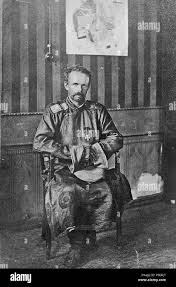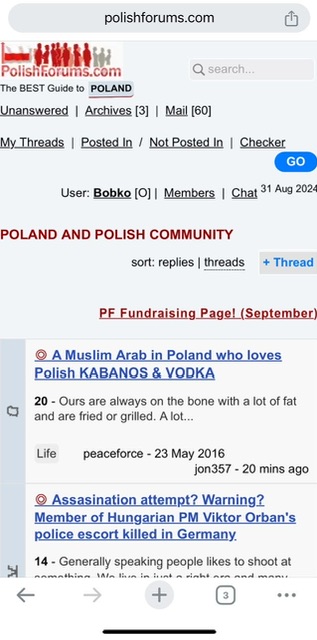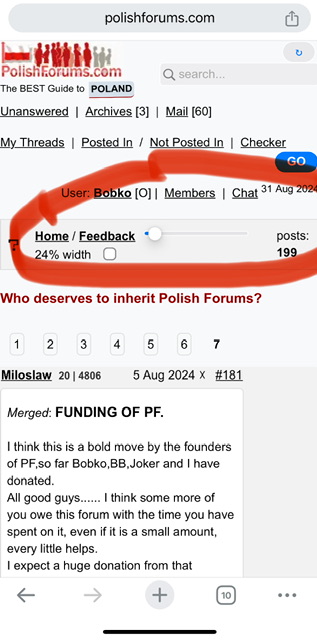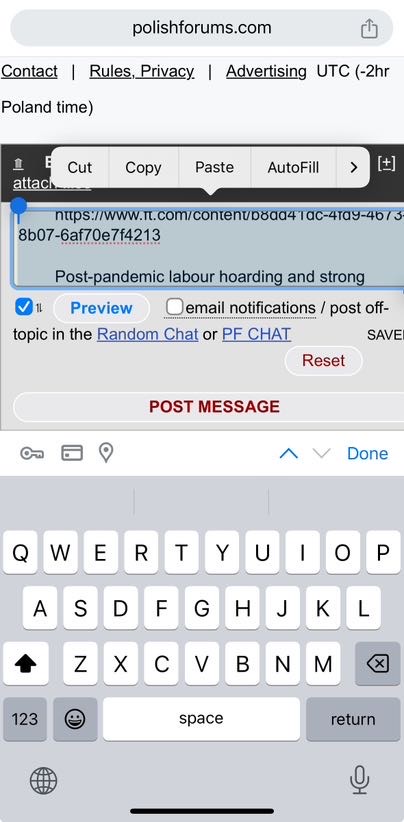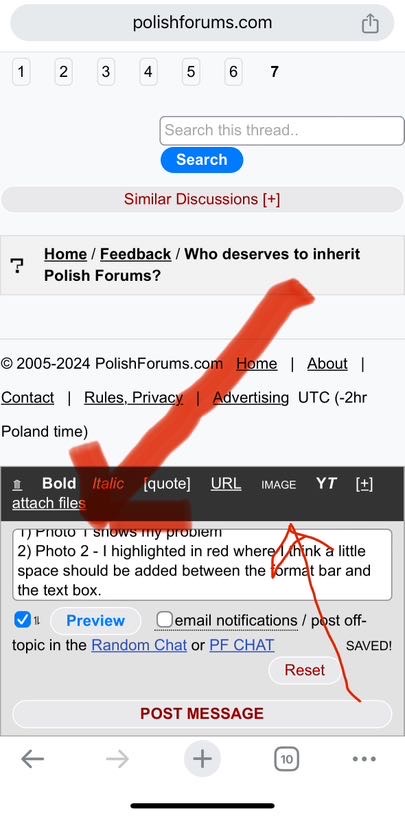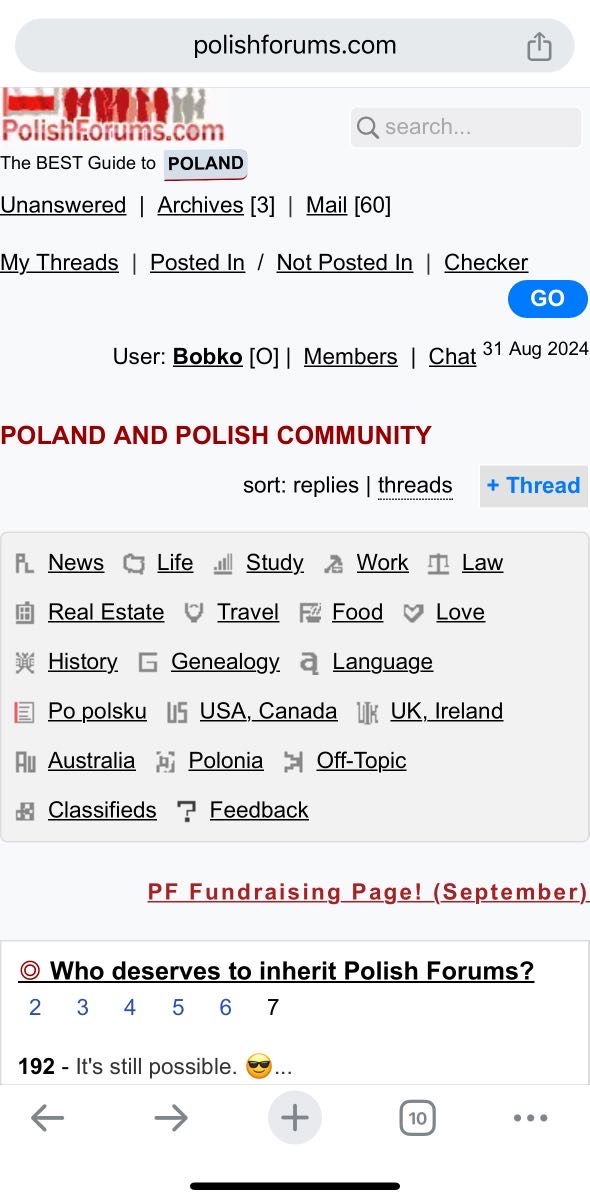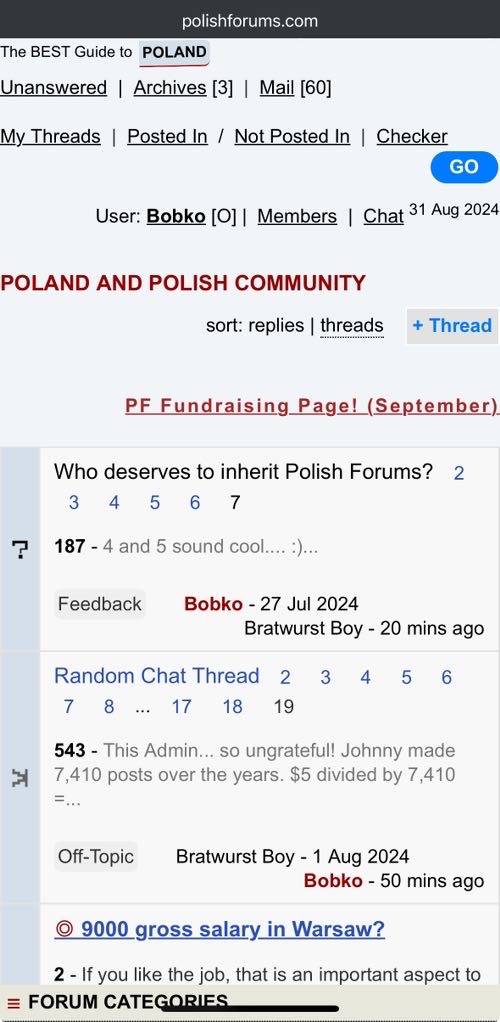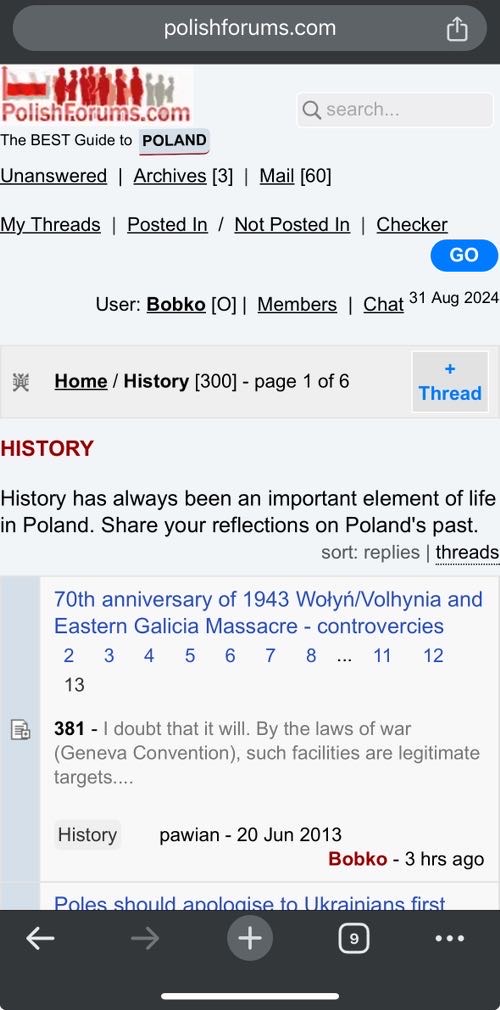Bobko
7 Sep 2024
History / Should Poland organize March of the Living in Volhynia and Eastern Lesser Poland? [65]
What?
I read Pasternak and Nabokov - in their own translation. That is, first in Russian and then in English.
They wrote better English than most Englishmen.
What kind of masochist do you think I am?
If I were a professional propagandist, then PF would be a bad place to hone my skills away from the sunlight. The people here are in no way representative of the wider masses, but instead a collection of exquisite oddballs.
A good propagandist, has to be able to produce such content which will convince the widest cross section of society. It need not be clever, or nuanced - but there have to be certain elements - and testing those out on PF's users would not be practical.
Moreover writing that kind of effective propaganda for the social media age is incredibly tedious work, which dulls the mind.
P.S. - I think I would have more fun being the guy that sets the agenda for the day, at the Internet Research Agency.
He read Wuthering Heights, Pride and Prejudice, Emma and similar. :):):)
What?
I read Pasternak and Nabokov - in their own translation. That is, first in Russian and then in English.
They wrote better English than most Englishmen.
He treats the PF as a private hobby while he carries out the job of a professional Kremlin troll somewhere else.
What kind of masochist do you think I am?
If I were a professional propagandist, then PF would be a bad place to hone my skills away from the sunlight. The people here are in no way representative of the wider masses, but instead a collection of exquisite oddballs.
A good propagandist, has to be able to produce such content which will convince the widest cross section of society. It need not be clever, or nuanced - but there have to be certain elements - and testing those out on PF's users would not be practical.
Moreover writing that kind of effective propaganda for the social media age is incredibly tedious work, which dulls the mind.
P.S. - I think I would have more fun being the guy that sets the agenda for the day, at the Internet Research Agency.

